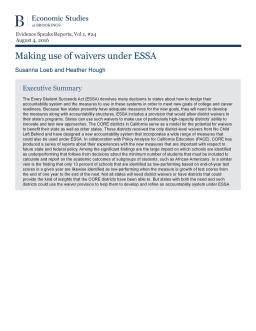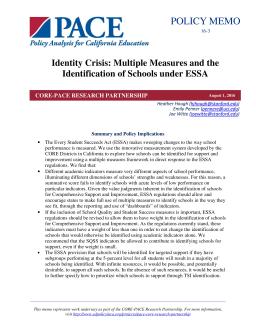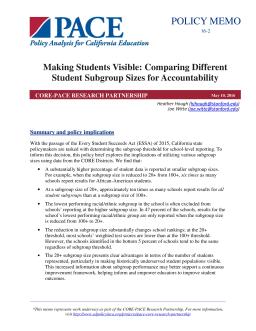Heather J. Hough

Heather Hough is a senior policy and research fellow and the former executive director of Policy Analysis for California Education (PACE). Her research and analytic approach explores how a wide range of data on student outcomes—including academic, health and well-being, and experiential—can inform our collective understanding of student success, teacher and system performance, and the efficacy of programs and policies. She is committed to strengthening the impact of research on local- and state-level policymaking and implementation, with a particular focus on policy coherence, system alignment, and continuous improvement. Hough has worked in a variety of capacities to support policy and practice in education, including as the founding director of the research partnership between PACE and the CORE Districts; as an improvement advisor at the Carnegie Foundation for the Advancement of Teaching; and as a researcher at the Public Policy Institute of California, the Center for Education Policy Analysis at Stanford University, and the Center for Education Policy at SRI International. She has served on many statewide committees and work groups, and is currently a member of the advisory board for the Cradle-to-Career Data System. Hough received her BA in public policy and her PhD in education policy from Stanford University.
updated 2024







Pagination